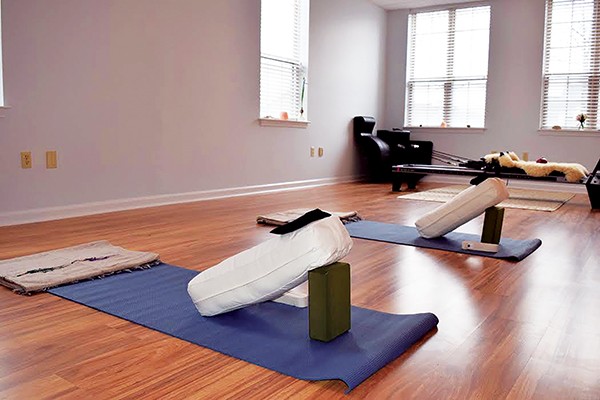In 2014, Fairhaven Treatment Center opened a residential eating disorder center on Houston Levee in Cordova to take in up to 13 clients at a time, making it the only residential facility solely focused on eating disorders for hundreds of miles. Their program has been so successful that they’ve outgrown their space and have opened an additional Cordova facility just for outpatient treatment.
The space at 671 N. Ericson will allow them to continue follow-up treatment with residential patients, as they check out of the facility. Fairhaven had been handling outpatient services from their residential center, but they were running out of room to do so.
The new space will also allow Fairhaven more room to treat less serious cases that may not require residential treatment, and they plan to run adolescent after-school treatment programs for patients ages 13 to 17 at the new center. Fairhaven treats women suffering from anorexia, bulimia, binge eating, or other eating disorders.

Fairhaven offers yoga and related therapies to eating disorder patients.
“This can be a step-down program, or it can be a less-intense-than-residential program with a goal of keeping someone from having to go into residential care,” said Fairhaven founder and clinical director Dr. Teri McCann. “We use the word outpatient because people aren’t spending the night, but it’s not traditional outpatient care because a patient could have services up to eight hours a day. They might be having two to three meals a day here.”
Much like the residential center, the new outpatient facility has rooms for group therapy, an art therapy studio, and a mind-body room for yoga, pilates, and relaxation and breath therapies.
“The mind-body programming is about more than having [clients] enjoy themselves. Eating disorders are life-threatening, and there’s a huge disconnect between body and emotions and the mind,” said Molly Fleming, therapist and director of the mind-body program. “It’s super important to be able to calm yourself down and relax. The stress levels are extremely high with eating disorders.”
The new building has a larger kitchen space than the residential facility, and nutrition education is a big part of the recovery process, Fleming said. Clients will have more hands-on time learning to cook healthy meals in the kitchen.
“This is a much less restrictive environment in a lot of ways. People are free to come and go, and there’s not as much oversight in terms of bathrooms and things like that,” McCann said.
Fairhaven’s new center is taking in its first patients just as Congress is considering a bill that would mandate that insurance companies and health professionals treat eating disorders equally to other illnesses.
The Anna Westin Act, which is currently in committee, would allow for training to help medical workers spot precursory symptoms and behaviors associated with eating disorders, provide better treatment coverage for eating disorders, and shed light on the harmful effects of altered body images in advertising.
Eating disorders are included in the Mental Health Parity and Addiction Equity Act of 2008, which says that mental illnesses should have the same coverage as physical ones, but McCann said insurance companies often fight having to pay for eating disorder treatment.
“I dealt with one insurance policy [two weeks ago] where they said they would not pay for eating disorder treatment,” said McCann, who recently traveled to Washington, D.C., to lobby in favor of the bill. “Mental health parity is something that insurance companies are supposed to abide by, and this act is a way to enforce mental health parity laws.”